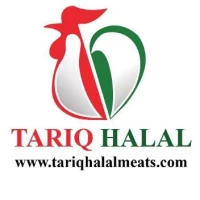IT seems to be an increasingly visible logo
on an increasing number of British shops and restaurants, but what is
this word, and what does it mean? It consists of four or sometimes five
characters in what appears to be Arabic script, in a sort of squiggly
form that will be incomprehensible to most.
But,
it is lunchtime, and the lengthy queues outside this particular fast
food restaurant would suggest that the burgers and chicken tender
strips are delicious and worth waiting for, and no unrecognised word is
going to prevent this mixed crowd of patrons from sitting down and
tucking in.
The
word in question is ‘Halal’, which will probably mean nothing to the
majority of Britons, however for followers of Islam, and when grabbing
your lunch or shopping at the butchers, seeing the halal logo is a
must, for UK Muslims to be certain that the food has been prepared in
accordance with the teachings of Islamic dietary law.
Since
the emergence of the first (and now seemingly ubiquitous) curry
restaurants in Britain, there have been many firsts for halal food,
with the word halal now being visible next to Chinese restaurants,
steak houses and even school dinners.
The
latter in particular will be a relief to many school children as
personal memories of seemingly only being able to eat egg and grated
cheese daily, or hoping that the allowable fish dish was on the school
menu are not particularly fond ones.
In
today’s Britain, however things have moved on with more understanding
of the needs of consumers from a particular segment of society. Slowly
too, and in their efforts to attract new customers, corporate Britain
has woken up to the strength of the ‘halal pound’, and are coming up
with newer and more ingenious ways of appealing to the Muslim customer.
Wander
down the aisles of supermarket giants Asda, and refrigerators full of
halal meat and poultry with labelling from Brazil or New Zealand sit
next to boxed kebabs and minced meat samosas. This may be a familiar
sight to shoppers in the Gulf, but for Britain this has come as
somewhat of a revolution as forward thinking company management aim for
an inclusive customer base, and create loyalty. As long as those
pennies (and more importantly pounds!) are being taken at the cash
register everyone will be happy.
Another
retail first came about when, as well as Asda, Tesco and Morrisons
decided to sell halal chocolate bars, the brainwave of London
businessman Khalid Sharif who launched his caramel and orange range to
wide acclaim four years ago. This turned out to be a double victory for
the young entrepreneur when his sales soared from the makers of Mars
and Snickers ill advised decision to introduce to usage of animal
products in their own range.
On
announcing it’s flights to Dubai, and a first amongst British airlines,
Luton based carrier Silverjet announced an ex-UK all halal menu, and
now a branch of McDonalds in London’s Southall is currently trialing a
halal menu for some of it’s burgers. As witnessed by the popularity of
global restaurant chains to satisfy the dining demands of it’s
cosmopolitan population in the UAE and other Gulf countries, the usage
of halal foods enables everyone to enjoy that burger or steak without
the fuss. More UK companies take note.



